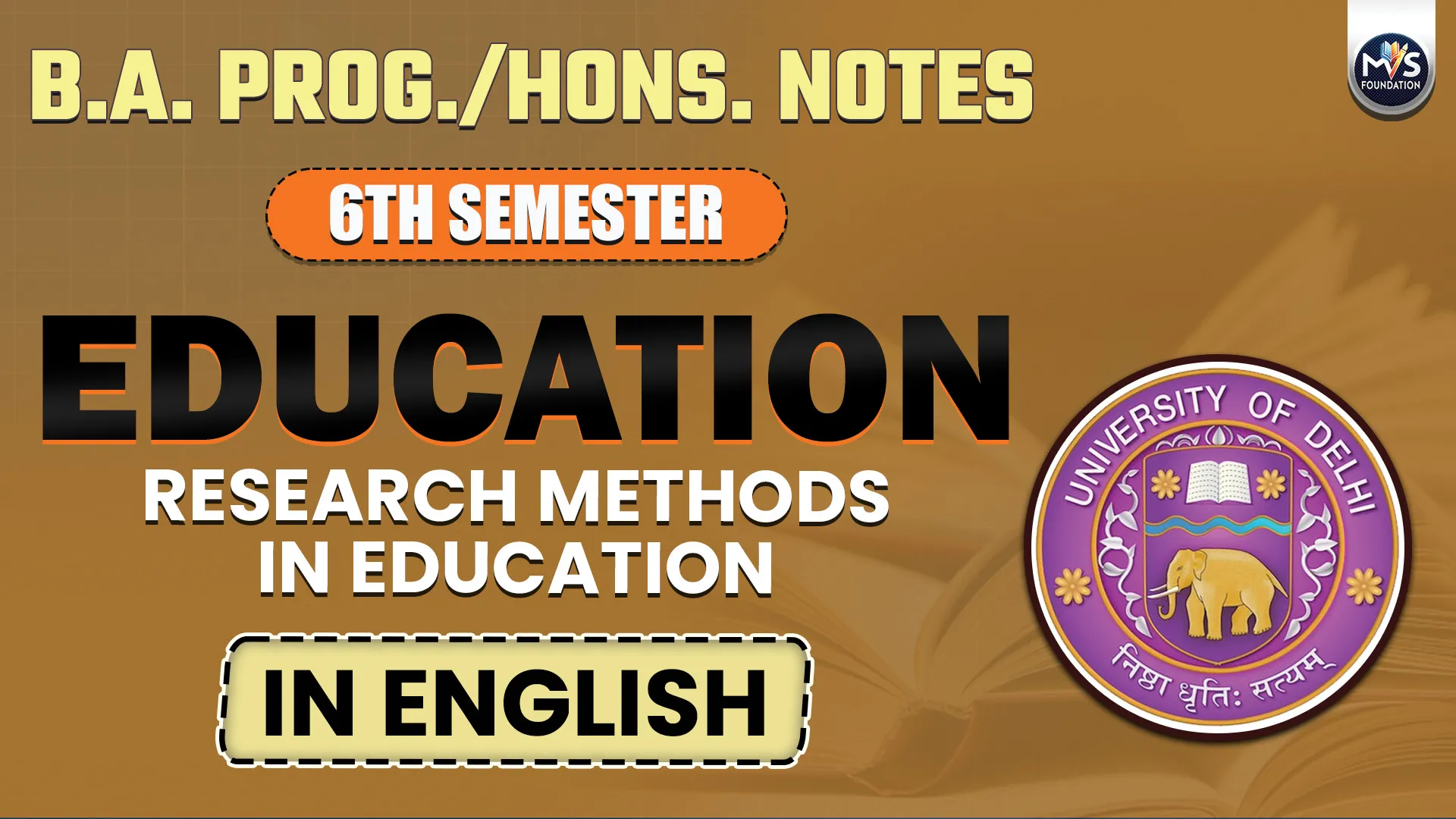
Get in Touch
We will get back to you within 24 hours.
Welcome to MVS Blog

Question 1. How educational research contribute to development of effective educational policies?
Answer
Introduction
Research is a systematic process of investigation aimed at discovering new knowledge or understanding existing concepts.
The term itself, broken down into "re" (again) and "search" (to find), highlights the repetitive nature of research a repeated exploration.
Definition
According to Kerlinger, "Research is a systematic, controlled, empirical and critical investigation of hypothetical statements about the assumed relationships between natural events."
Educational Research
When research is done to solve problems in the field of education or to acquire or create new knowledge, it is called educational research. Therefore, educational research is a process in which problems in the field of education are solved through systematic actions or scientific method. For example, if a researcher wants to do content analysis of textbooks developed as per NEP-2020 to know their quality, then this research will be Educational Research.
Need of Educational Research
Educational policies are important for many reasons,
"Our educational policies are the building blocks of our learning experiences, which in turn shape who we become and how our society functions. These are essential for creating a fair, effective, and forward-thinking education system that benefits individuals and society as a whole. It's importance:-
|
1. Standardization
|
2. Educational practices
|
3. Equity
|
|
4. Technology The world changes, and so does technology. Educational policies allow the education system to change with it, so it stays useful. |
5. Future workforce The world is always changing. Policies help schools teach the skills that people need for jobs and life. They make sure students are ready for the future. |
6. Social Development Education helps people understand the world and be good citizens. Policies help make sure everyone gets that chance. |
In conclusion,
Educational research plays a vital role in shaping better policies by providing valuable insights into teaching, learning, and school systems. It helps identify problems, test new solutions, and evaluate the effectiveness of existing policies. By using research-based evidence, policymakers can make informed decisions that improve education quality, ensure fairness, and adapt to changing needs. This leads to a more effective and inclusive education system that benefits students, teachers, and society as a whole.
Click here For Full Notes
0 Response